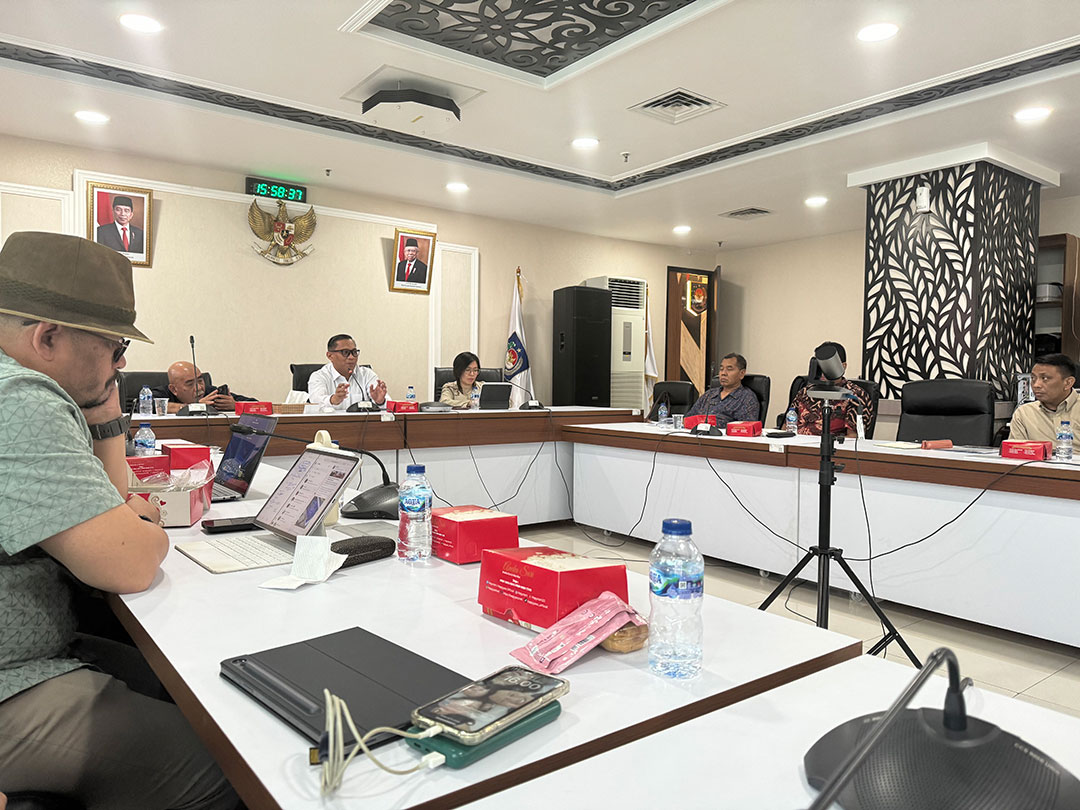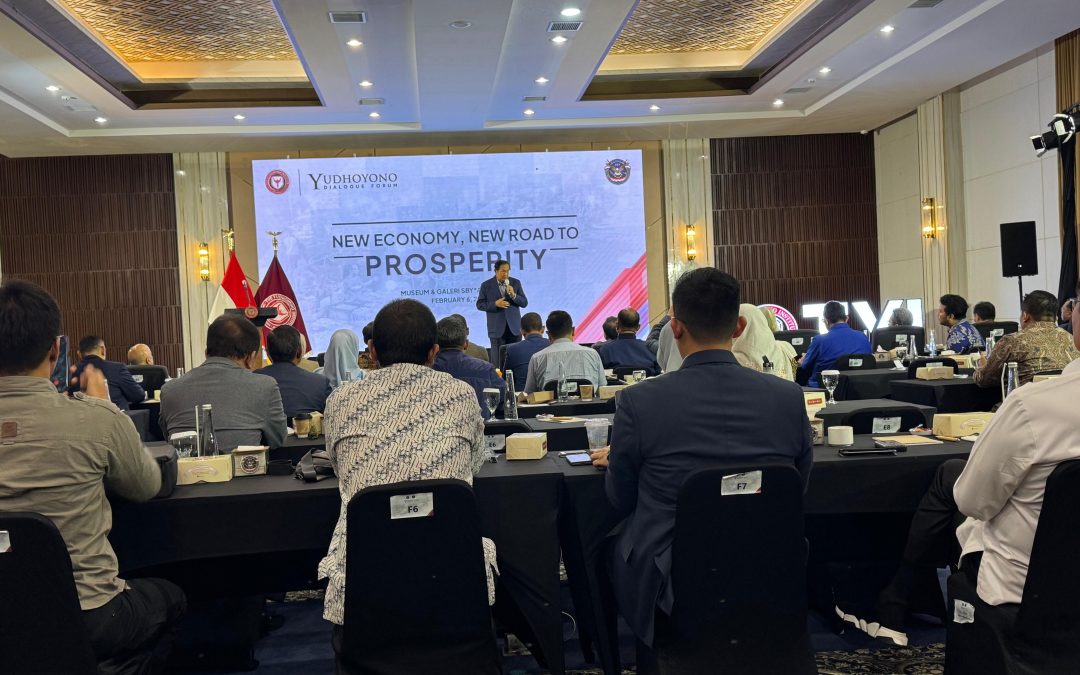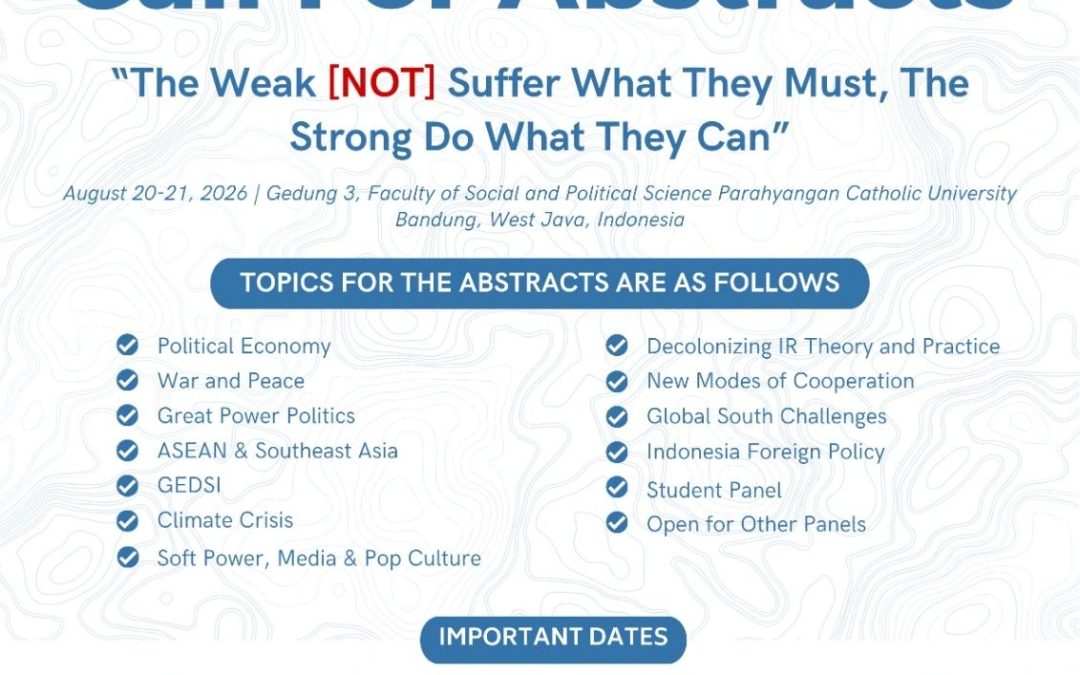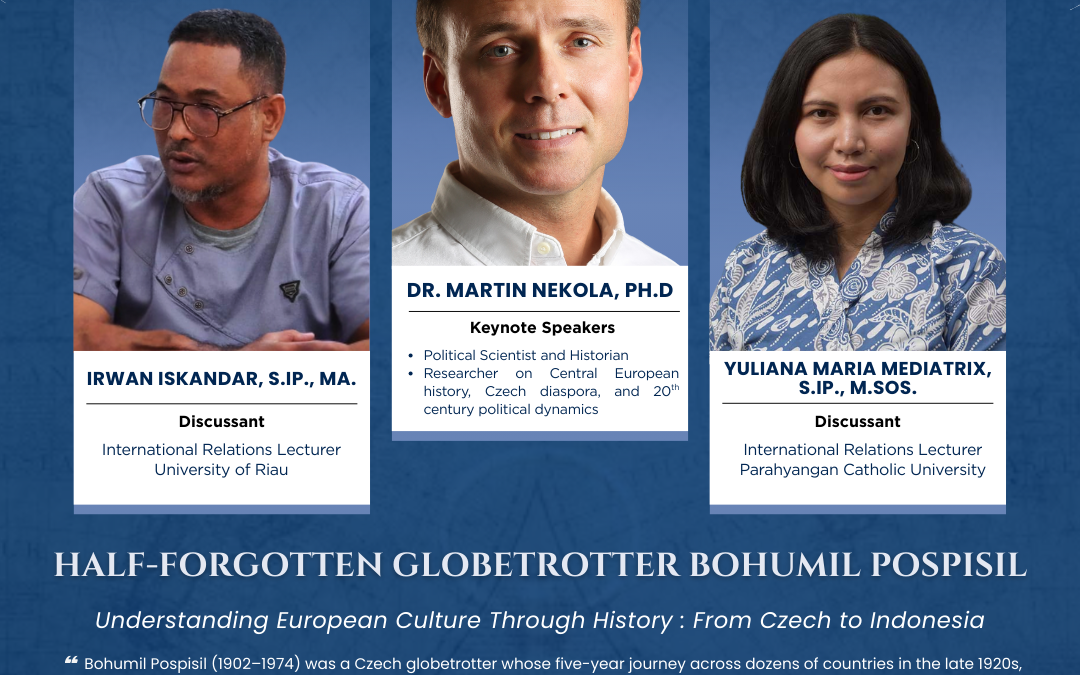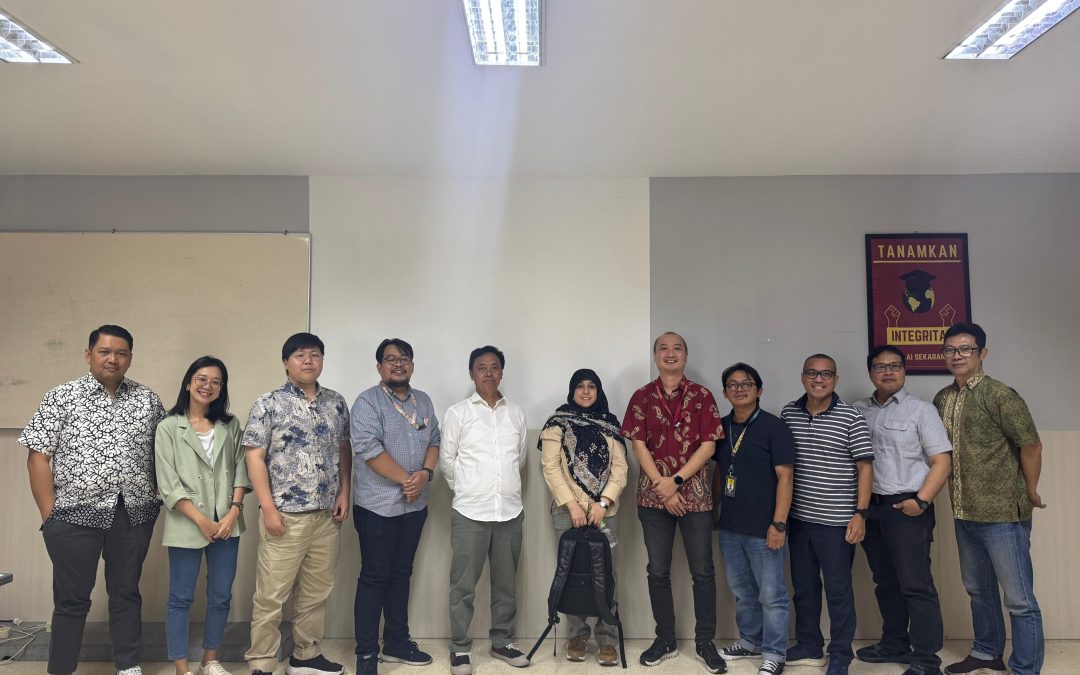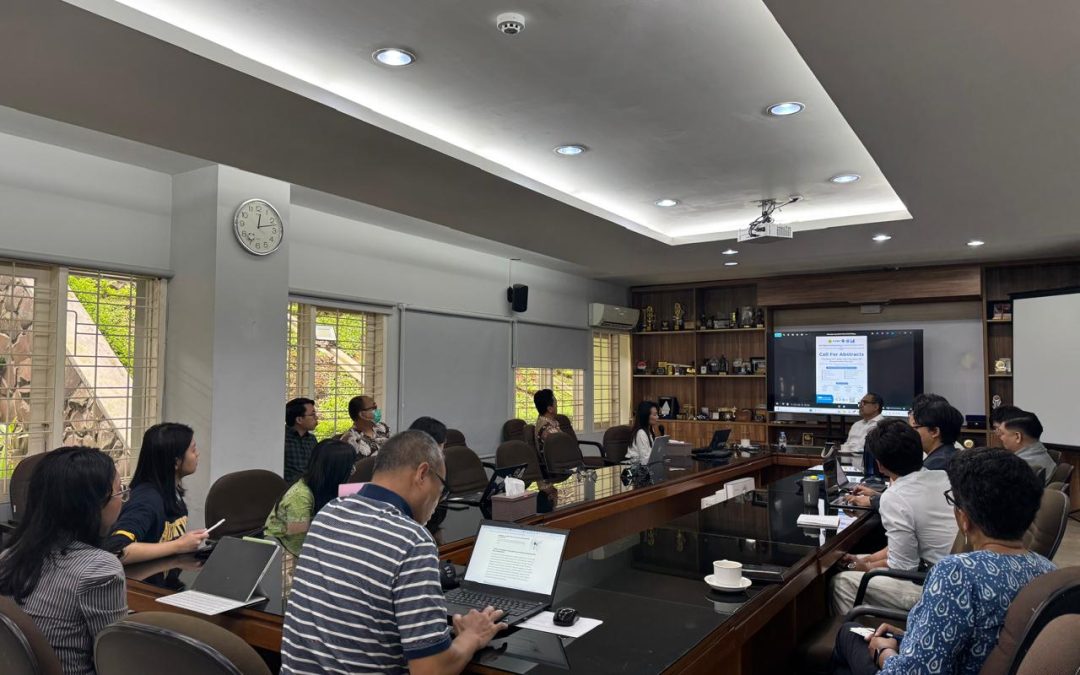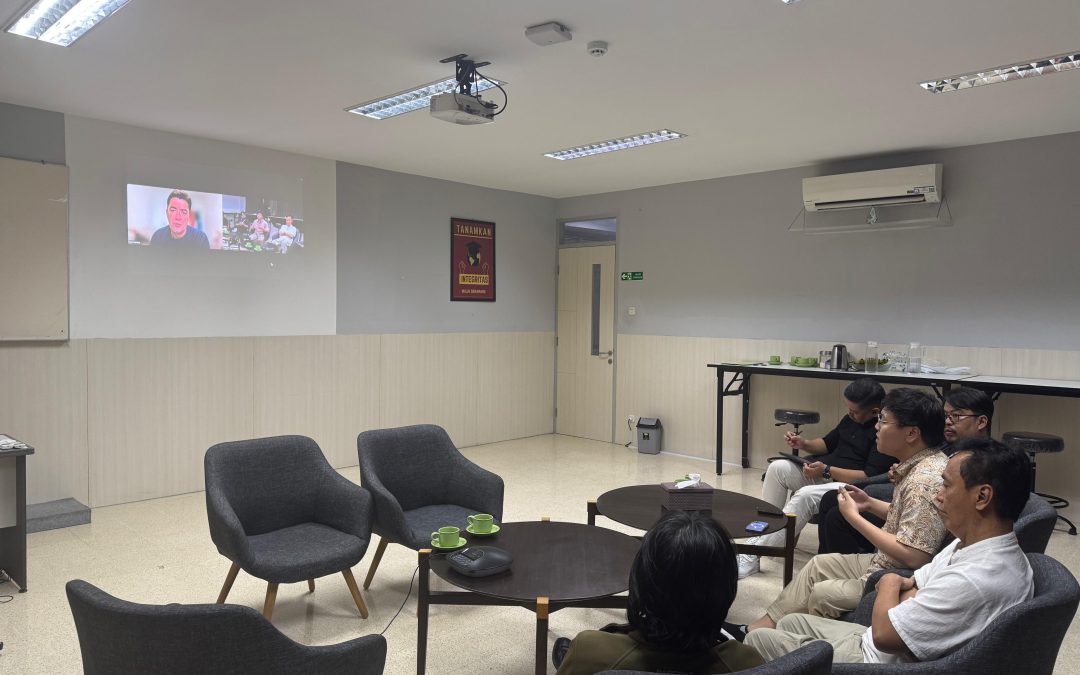To strengthen cooperation among smart city development partners in Indonesia and ASEAN, the Directorate General of Territorial Administration of the Ministry of Home Affairs held a Synergy and Collaboration Coordination Meeting on August 14, 2024, at Building H, Directorate General of Territorial Administration.
In his remarks, Dr. Amran Jamaludin, Acting Director General of Territorial Administration, emphasized the importance of partnerships in supporting the government’s work plan. The government is committed to providing a greater role for private partners to actively contribute, especially to the development of cities in Indonesia. Addressing urban issues such as waste management and transportation infrastructure requires the participation of private partners. The government is open to input and support from partners, including collaboration with international parties. Indonesia already has urban standards that measure urban maturity levels.
Present at the meeting were the President Director of ASECH Indonesia; the Executive Director of the Association of Indonesian City Governments (APEKSI); the General Chairperson of the Association of Information Technology Professionals (PPTI); Secretary General of the National Information and Communication Technology Entrepreneurs Association (APTIKNAS); Chairman of the Indonesian Information Technology Consultants Association (IKTII); Chairman of the Parahyangan Center for International Studies (PACIS); Chairman of the Indonesian Plastic Recycling Association (ADUPI); the Indonesian Industry Digital Transformation Council; Indonesia Strategic Research; PT. Napindo Media Ashatama; the Entrepreneurship Development Committee, Indonesian Employers’ Association (APINDO); and a representative from Deutsche Gesselschaft für Internationale Zusammenarbeit (GIZ) Indonesia.
In his remarks, Dr. Amran Jamaludin, Acting Director General of Regional Administration, emphasized the importance of partnerships in supporting the government’s work plan. The government is committed to providing a greater role for private partners to actively contribute, especially in the development of cities in Indonesia. Addressing urban issues such as waste management and transportation infrastructure requires the participation of private partners. The government is open to input and support from partners, including collaboration with international parties. Indonesia already has urban standards that measure urban maturity levels.
Present at the meeting were the President Director of ASECH Indonesia; the Executive Director of the Association of Indonesian City Governments (APEKSI); the Chairman of the Information Technology Professionals Association (PPTI); the Secretary General of the National Information and Communication Technology Entrepreneurs Association (APTIKNAS); the Chairman of the Indonesian Information Technology Consultants Association (IKTII); the Chairman of the Parahyangan Center for International Studies (PACIS); the Chairman of the Indonesian Plastic Recycling Association (ADUPI); the Indonesian Industry Digital Transformation Council; Indonesia Strategic Research; PT. Napindo Media Ashatama; the Entrepreneurship Development Committee, Indonesian Employers’ Association (APINDO); and representatives from Deutsche Gesselschaft für Internationale Zusammenarbeit (GIZ) Indonesia.
The first presentation was delivered by Ms. Erike, introducing ASECH’s role in supporting smart city development in Indonesia, including the MoU with Sumedang Regency. The next presentation was delivered by Mr. Alwis Rustam, the Executive Director of APEKSI, which represents 98 city governments in Indonesia and is actively seeking synergies among various stakeholders. Mr. Alwis conveyed the challenges related to overlapping regulations made by several related ministries, including the Ministry of Administrative and Bureaucratic Reform, the Ministry of Home Affairs, the Ministry of Finance, BPS, the Ministry of Communication and Information, and the Ministry of National Development Planning/Bappenas. This confusion needs to be resolved to encourage urban development. APEKSI expects clarity in the use of data sources, the Draft Regulation of the Minister of Home Affairs on RP2P and synchronization of data guardians in the SDPDN platform used for various purposes. There is also a need for integration of platforms and information systems for planning and evaluation/reporting; SAKIB, SIPD and SIKD; RDTR and RTRW Regional Regulations and synchronization with OSS RBA; Cross-sectoral data between ministries related to poverty, health, education, basic service achievements; Data and Information Center with various Directorates General within the Ministry of Home Affairs.
The smart city network partners then had the opportunity to present their perspectives on smart city development, in accordance with the fields and scopes of their respective institutions.
Heri Sutrisno, Chair of the Information Technology Professionals Association (PPTI), presented plans for implementing urban management and smart city competencies and provided input on the draft Regulation of the Minister of Home Affairs (Permendagri) on the RP2P (Regional Smart City Development Plan).
Mr. Teddi Sukardi, a consultant with extensive experience in smart city capacity building in Indonesia, shared his views on issues that need to be addressed in developing collaboration among non-governmental parties, including capacity building programs. Budget constraints are one factor. It is necessary to explore alternative sources of funding for strategic activities.
Mr. Fanky Christian, Secretary General of APTIKNAS, is heavily involved in smart city-related work. The challenges faced generally relate to information on smart city job opportunities and duplication of knowledge-sharing activities. He proposed the need for capacity building in collaboration with ASECH, particularly in urban areas, which requires support from information technology and transparency of job opportunity information related to smart city development.
Ms. Lishia Erza, Chair of the Entrepreneurship, Capacity Building, and Inclusive Economy Committee of the Indonesian Employers’ Association (APINDO), shared experiences related to WASH, city finance, climate finance, and food security and agriculture more broadly.
Mr. Alexander Ludi, Representative of the Indonesian Digital Industry Transformation Council and Deputy Chairman of the Start-up Ecosystem, explained how the digital industry is being developed in Indonesia. He stated that a silo mindset is a challenge in digital industry development and one of the challenges in building broad partner collaboration. He emphasized the need to include investors as key partners in the pentahelic approach to smart city development.
Three GIZ representatives presented the Indonesia-Germany cooperation program on energy transition and potential support for smart city development in Indonesia. A holistic approach is needed to build smart cities and reduce complexity by referring to national targets, such as the Coal Phase Out and Just Transition, the Renewable Energy target, and GIZ’s thematic pillars. GIZ plans to provide support to city governments through communication network development, capacity building through training, energy efficiency, and access to finance.
Mr. Cecep Hidayat, Executive Director of Indonesia Strategic Research, presented ideas on the importance of smart energy, smart buildings, smart mobility, smart infrastructure, smart governance and education, smart citizens, and smart security. Mr. Cecep emphasized the need for smart defense and cybersecurity in Indonesian cities, including the Indonesian Capital City (IKN).
On the occasion, a representative from the Chair of the Indonesian Plastic Recycling Association (ADUPI) expressed his support for waste management in Indonesian cities, while a representative from Indowater presented plans for the 2024 Indowater Expo & Forum.

Yulius P. Hermawan, Chair of PACIS, expressed the Center for International Relations Studies’ support for Indonesia’s role as shepherd of the ASEAN Smart City Network (ASCN). PACIS has prepared a policy study on what Indonesia can do, including encouraging collaboration forums among ASCN members, partnership forums among ASEAN donors/dialogue partners, innovation forums involving private partners in the innovative technology and information industry, and the development of a smart city development ecosystem in ASEAN. The PACIS Chair also presented a presentation on mapping Smart City projects in ASCN member countries, challenges, and partnership needs, as well as funding support.
In his closing remarks, Dr. Amran Jamaludin expressed his appreciation for the knowledge sharing from each party and the need for follow-up from collaborative meetings involving various sectors to become good practices. With the development of effective national collaboration, Indonesia is ready to contribute to the development of smart cities in ASEAN countries. The Acting Director General of Territorial Administration acknowledged that each stakeholder cannot work alone, but needs to work together. All stakeholders who support urban sectors can continue to be involved in sustainable collaboration. Assessment of each smart city indicator can be carried out by groups that handle specific indicators. The higher the level of collaboration, the greater the opportunity to realize smart cities in Indonesia. In the future, this collaboration can become a model for collaboration at the ASEAN level.

